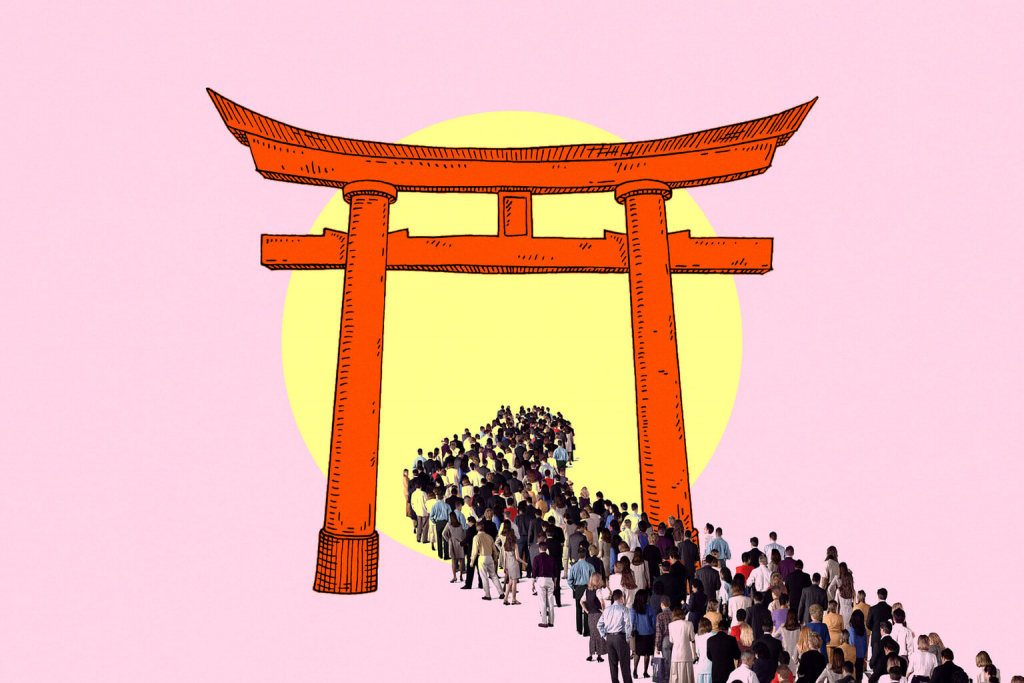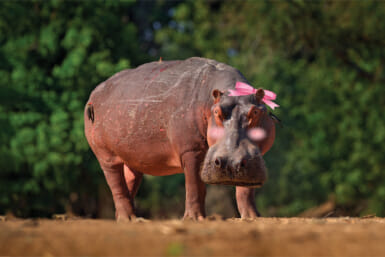This week’s news roundup is dominated by press conferences, telephone calls and the Winter Olympics. On Thursday, Prime Minister Fumio Kishida confirmed that Japan would be easing its strict entry restrictions from March. These are the words several foreign students and workers have been waiting a long time to hear. Many remain skeptical, though, fearing they may have to continue to bide their time for a while yet.
It’s been a busy week for the PM who made calls to both Ukrainian President Volodymyr Zelenskyy and Russian President Vladimir Putin, urging the latter to find a diplomatic solution to ease tensions in the region. The defense minister here, meanwhile, voiced his concerns regarding Russia’s naval activities in the Sea of Japan.
At the Winter Games, Japan has already amassed a record 17 medals. Four of them have come from Miho Takagi, who last night won her first-ever individual gold. The question now is can the women’s curling team, or possibly Miho’s sister Nana Takagi add to the medal tally this weekend? Team Riku-Ryu (Riku Miura and Ryuichi Kihara) could also be in with a chance in pair skating.
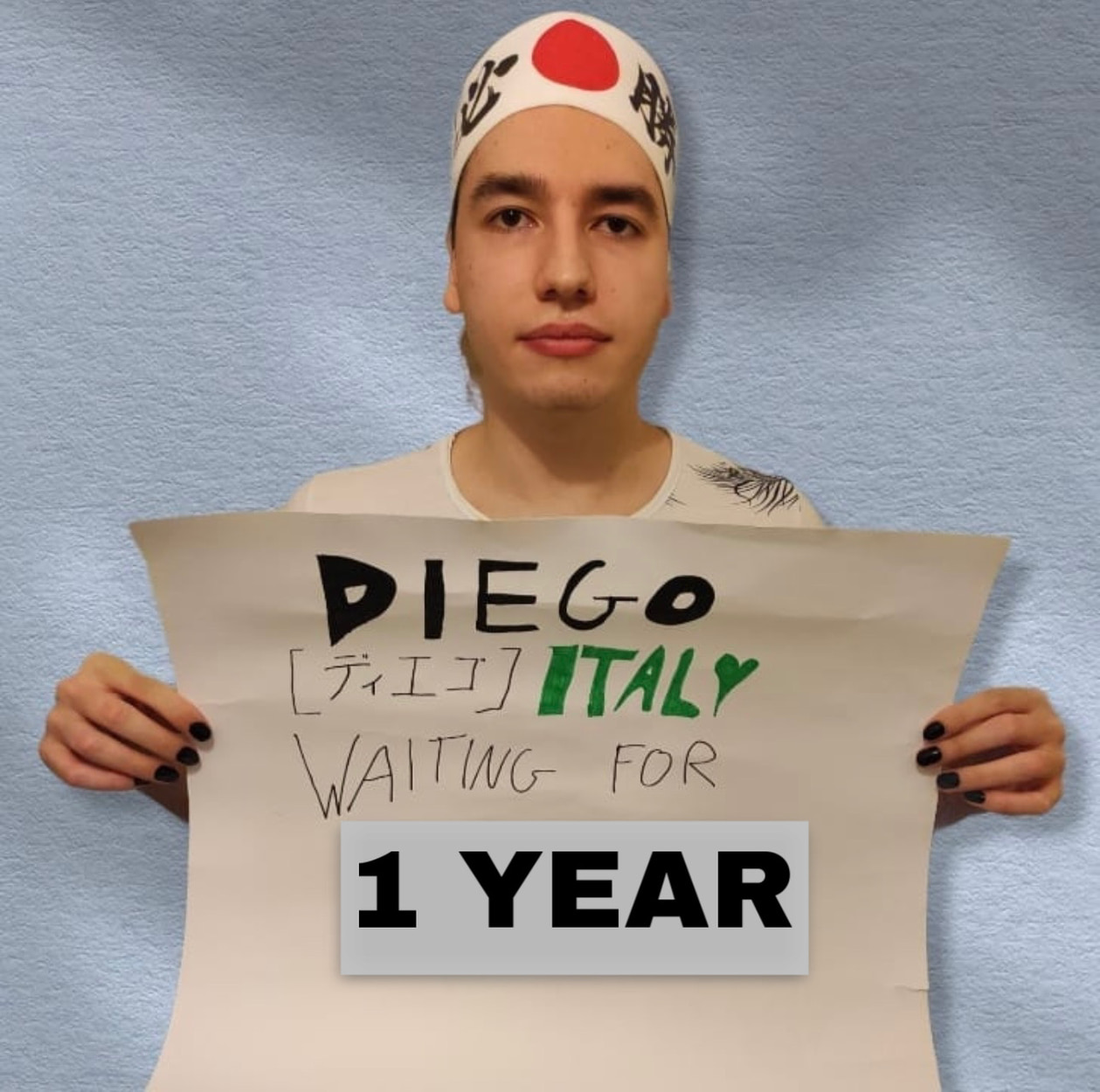
Finally some hope for students and workers from overseas #allentriesarethesame
Border Restrictions Set to Be Eased Gradually
It’s the news many foreign students and workers have been waiting several months to hear. From March, new entries will be allowed to enter Japan from abroad for reasons other than tourism. “We’re gradually walking toward the exit of the sixth wave,” said Prime Minister Kishida at a press conference on Thursday. “We need to start preparing for the next phase in stages.” The PM confirmed that the daily cap on people allowed to enter will be raised from 3,500 to 5,000. Those who’ve been vaccinated three times from a region where infections are stabilizing won’t have to quarantine. Others will need to isolate for three days.
“This is just the first step. I will continue considering how much we can ease measures,” added Kishida. Davide Rossi, who’s been supporting students and workers stranded outside Japan through his website, is pleased with the news, but remains cautious. “It’s a step in the right direction,” he told TW. “However, several questions are still left unanswered. We need to wait for the other details in the coming days.” There was also a lot of skepticism on social media. Students and workers waiting to enter have been here before. Things looked positive in autumn until a new variant arrived. While 5,000 entries a day is an improvement, it isn’t a lot. There could still be a long wait for many.
Russian Warships Spotted Near Japan Described as “Extremely Unusual”
At a press conference on Tuesday, Japanese Defense Minister Nobuo Kishi voiced his concerns regarding Russia’s recent naval activities in the Sea of Japan and the southern part of the Sea of Okhotsk. According to Kishi, the Self Defense Forces here have tracked 24 warships since February 1. “The Russian military’s intensifying its activity in the east and west to show off its capability in concert with what it’s been doing around Ukraine,” he said. “A large-scale military exercise by the entire Russian naval fleet at this time of the year is extremely unusual.”
On the same day as Kishi’s press conference, Kishida called Ukrainian President Volodymyr Zelenskyy. Speaking to reporters after their conversation, Kishida expressed his support for Ukraine’s sovereignty and territorial integrity. The two men reportedly discussed the protection of Japanese nationals in the event of a Russian invasion. On Thursday, it was Vladimir Putin’s turn to receive a call from the Japanese PM. It’s the second time Kishida has spoken to the Russian leader over the phone since taking office last October. He reportedly urged Putin to find a solution to the Ukrainian situation through diplomacy.
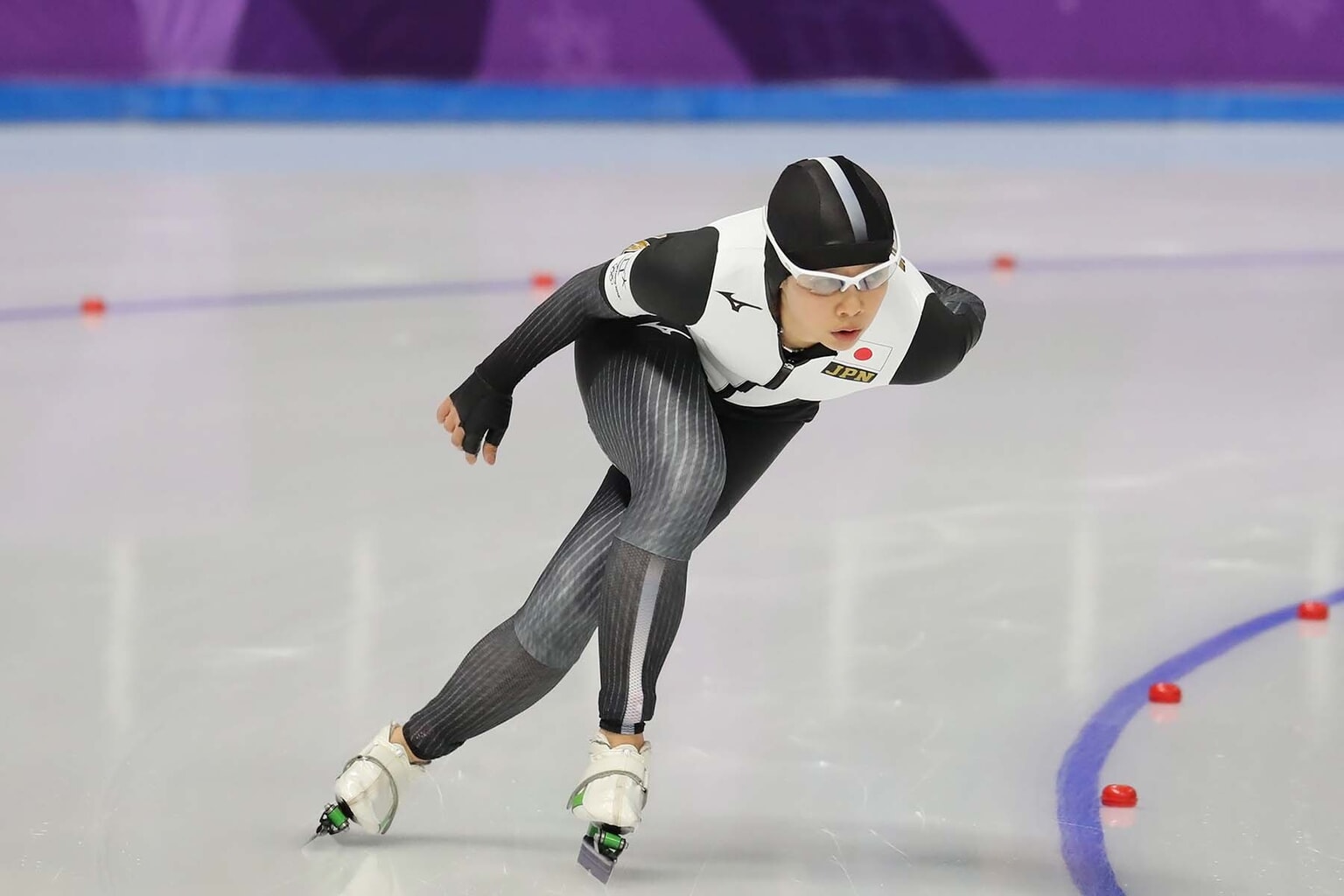
Nana Takagi’s slip on the final bend cost Japan gold in the team pursuit | Photo by Leonard Zhukovsky/Shutterstock
Takagi Adds a Gold to Her Three Silvers
After narrow defeats in the 500m and 1,500m races followed by a despairing loss in the team pursuit competition, Miho Takagi finally got her hands on a gold medal in the 1,000m race. That’s now seven medals from two Games, four more than any other Japanese athlete at the Winter Olympics. It’s the second time she topped the podium and the first in an individual event. She won the race in an Olympic record time of 1:13:19. On Monday, she finished second in the 500m behind America’s Erin Jackson, adding to the silver she won in the 1,500m last week.
Takagi was also part of the pursuit team that finished runner-up. Going against Canada in the final, Japan led throughout and were on course for a second consecutive gold medal. While their opponents were catching, it looked like the 2018 champions would just about hold on. Then came the slip. On the last bend, Miho’s sister Nana Takagi lost her footing and went crashing into the wall. The Canadians broke the Olympic record to take home the gold. Japan had to settle for silver. In the men’s 500m, meanwhile, Wataru Morishige won a bronze finishing behind Gao Tingyu of China and Korea’s Cha Min-kyu.
Bronze for Sakamoto as Tearful Valieva Misses Out on a Medal
It was the most controversial figure skating competition at the Olympics since the Tonya-Nancy scandal of 1994. All eyes were on a 15-year-old girl who was allowed to skate despite failing a doping test. Kamila Valieva led after the short skate so was last to go in the free skate. Her compatriots Alexandra Trusova and Anna Shcherbakova produced flawless performances. The latter led with the former in second and Japan’s Kaori Sakamoto third. Valieva, though, was expected to eclipse them all. Then she fell. And fell again. Her Olympic dream had turned into a nightmare. Her score was only good enough for fourth, meaning Sakamoto held on for the bronze. Teammate Wakaba Higuchi finished fifth while Mana Kawabe was 23rd.
In snowboarding, wonderkid Kokomo Murase became the youngest Japanese woman to win a Winter Olympic medal. The 17-year-old picked up a bronze in the big air competition, finishing behind New Zealand’s Zoi Sadowski-Synnott and winner Anna Gasser from Austria. Reira Iwabuchi, who placed fourth, nearly landed the first in-competition triple cork in women’s big air history. Miyabi Onitsuka finished 11th after a nasty fall on her first run. The men’s competition was won by China’s Su Yiming. Hiroaki Kunitake narrowly missed out on a medal in fourth while Takeru Otsuka finished ninth.
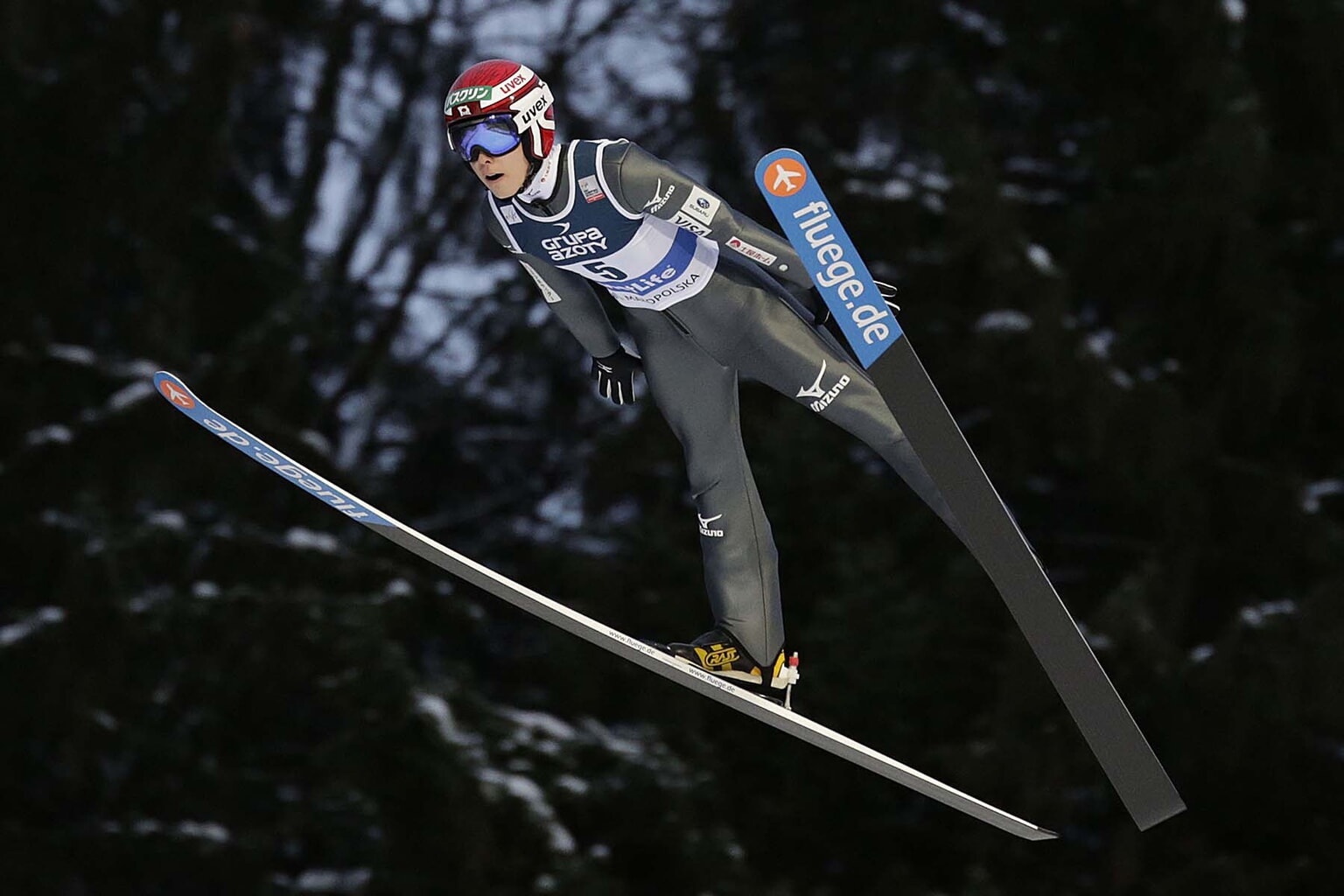
Another medal for Ryoyu Kobayashi | Photo by Marcin Kadziolka/Shutterstock
Silver for Kobayashi, Two Bronze Medals for Watabe
Ski jumper Ryoyu Kobayashi followed up his normal-hill gold medal with a silver in the large-hill. He became the first Japanese jumper to finish on the podium in both events since Kazuyoshi Funaki in 1998. The Iwate Prefecture-native took the lead in the first round, scoring 147.0 points with a leap of 142 meters. His second score of 145.8, however, was not enough to take him past Norway’s Marius Lindvik. Kobayashi also competed in the men’s team competition which was won by Austria. Japan finished fifth.
Speaking before the Beijing Games, Akito Watabe said this would be his last Olympics. It got off to a disappointing start with a seventh-place finish in the normal-hill individual Nordic combined, an event in which he won silver medals in both Sochi and PyeongChang. He made up for that disappointment, though, by claiming two bronze medals. The first came in the large-hill event in which he finished behind Norwegian pair Joergen Graabak and Jens Luraas Oftebro. He then helped Japan’s Nordic Combined team finish third alongside his brother Yoshito Watabe, Hideaki Nagai, Sora Yachi and Ryota Yamamoto. Unsurprisingly, Norway won gold.
Japan Reach Curling Semis After Dramatic Group Stage Finale
It was a tense ending to the group stage in women’s curling. With Switzerland and Sweden already through to the semi-finals, four teams were battling it out for the final two spots: Japan, Korea, Canada and Britain. In the end it came down to the last stone of the match between Sweden and Korea. Team Kim was unable to pull off a take-out handing the Swedes an 8-4 victory. It meant Japan and GB advanced to the last four. Canada, despite finishing on the same points, missed out. Japan take on Switzerland tonight, while Britain meet Sweden.
In other sporting news, the J-League begins this evening with champions Kawasaki Frontale taking on FC Tokyo. In Europe, Takefusa Kubo was named man of the match in Mallorca’s 3-2 win over Athletic Bilbao. The winning goal came in the 88th minute from Kubo’s shot, though it was given as an Unai Simon own-goal after hitting the keeper in the back and bouncing in. Junya Ito also impressed for Genk, providing two assists in their 4-1 victory against Mechelen. Daizen Maeda scored two goals for Celtic while Ritsu Doan grabbed his fourth of the season for PSV.
Feature image by Anna Petek

